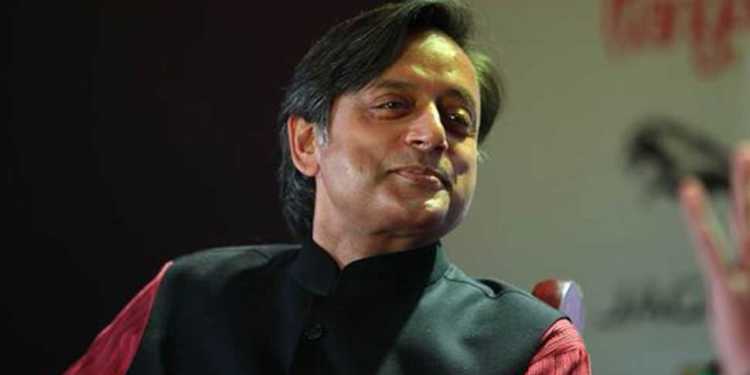The paragon of liberal virtues, advocate of ‘inclusive’ Hinduism and the ‘custodian’ of ‘Hindu faith’, Shashi Tharoor, has now taken it upon himself to discern and differentiate ‘good Hindus’ from ‘bad Hindus.’ In his rather exclusionary rhetoric on Tharoorian brand of ‘inclusive Hinduism’, Tharoor casts aspersion on the faith of those Hindus who believe that a temple should be built on the disputed site i.e. the place where the temple used to be before an invader demolished it and erected a monument of his conquest in its wake. In Tharoor’s view, these Hindus are ‘bad Hindus.’
It is logical to assume that, by virtue of his being, Shashi Tharoor would never surround himself with ‘bad Hindus.’ Further extension of this logic dictates that Hindus in the circle of trust of Shashi Tharoor and in the organization that he is a part of, the Congress, must be the ‘good Hindus.’ This assumption warrants an analysis of the ‘goodness’ (Hinduness?) of Tharoor’s near and dear ones. Let us start with Tharoor’s leader and the newly minted ‘Janeudhari Brahmin’, Congress President Rahul Gandhi.
So, according to Tharoor, the person who complained to a foreign diplomat, in confidence, that India’s internal security is threatened by Hindus and not the global menace of Islamist terrorism, holds aloft the torch of ‘inclusive Hinduism.’ The person who stated that Jo Mandir jaate hain vo ladkiyan chhedte hain is the one upon whom the hallowed title of ‘good Hindu’ must be bestowed, according to Tharoor.
Or is it the person who, defying logic and evidence, continuously peddled a farcical (but no less dangerous) narrative that the Hindu organization RSS was responsible for 26/11? The ‘good Hindu’ must be the person who put the blame of many terrorist attacks on Hindu organizations despite clear evidences to the contrary.
If not these persons then the collective of ‘good Hindus’ must be the organization that they are part of. The organization that systematically orchestrated an entire narrative of ‘Hindu terror’ must be the vanguard of ‘good Hindus’, the Tharoorian logic thus dictates. The organization that put a decorated Army Colonel behind bars to reinforce this narrative, without charges, must be the forum where the ‘good Hindus’ unite to celebrate the fact that they are not ‘bad Hindus.’ The organization that denied cultural-historical identity of Hindus and sought to destroy the historical remnants attached with it must be the ‘good Hindus’ Tharoor sings paeans about.
The cathartic moment that set in motion the events following it was, undoubtedly, epoch making warranted and necessitated by eons of subjugation of faith and denial of Hindu identity. Similar to any cathartic moment of such magnitude, that cathartic moment cannot and must not be judged on predetermined norms. Established social mores are bereft of the explanatory value to understand such event let alone justify or reject it in entirety. Having said that, the events following the moment are predetermined, and not only justified but must be celebrated, leading to one eventuality and one eventuality only, restoration of Ram Mandir. Mr. Tharoor, no amount of heuristic cockamamie would delay the outcome let alone stop it altogether. And that is the trait that the ‘Good Hindu’ embodies regardless of your labels.




























